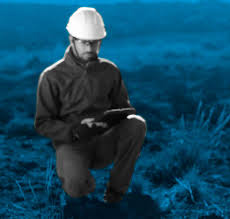Course Details
Your Growth, Our Mission

Course Description
The Training Course Will Highlight ?
This course is designed to provide an overview of one of the most important factors that determine the success or failure of an oil & gas project, this highly interactive program will equip you with a fundamental understanding of:
-
- The terminology, jargon and procedures used in seismic geophysics
- The strengths and limitations of the seismic method in Oil & Gas operations
- How 2D, 3D and 4D surveys are economically justified, acquired, processed and interpreted
- The construction, meaning and use of seismic maps and sections
- An overview of the latest technological developments in seismic geophysics
Training Objective
By the end of this course delegates will be able to:
-
- Obtain an understanding of the strengths and limitations of the seismic method, and the costs and risks involved, and how to reduce these
- Be able to communicate more effectively with petroleum geophysicists
- Understand the meaning of seismic maps and sections and know how to judge the quality and limitations of these important exploration tools
- Gain an overview of the latest developments in seismic technology
- Apply new-found knowledge to a series of simple illustrative exercises to aid understanding and gain confidence in use
- Know what types of questions to ask in order to assess the quality of a seismic project
Target Audience
Geologists, Geophysicists, Petrophysicists, Stratigraphers, Geochemists, Sedimentologists, Reservoir, Petroleum, Wellsite Geologists, Petroleum Engineers, Drilling Engineers, Reservoir Engineers, Production Engineers, Operations Engineers, Technologists, Log Analysts, E&P Personnel, Exploration & Development Personnel, Surveillance Engineers, Geologists, Reservoir Engineers, Seismic Interpreters, E&P Managers, Data Management and Oil & Gas Personnel
Training Methods
This interactive Training will be highly interactive, with opportunities to advance your opinions and ideas and will include;
- Lectures
- Workshop & Work Presentation
- Case Studies and Practical Exercise
- Videos and General Discussions
Daily Agenda
Key Elements of Petroleum Geology & the Role of Seismic
-
- Composition of the Earth’s crust and rock types
- Sedimentary basins and depositional environments
- Fundamentals of oil and gas accumulations
- Characteristics of hydrocarbon traps
- Role of seismic in the exploration cycle
Fundamentals of Seismology
Basic Principles
-
- Modes of sound energy propagation
- Compressional and shear waves
- Acoustic impedance and reflection coefficients
- Interval and average velocities
- Characteristics of the seismic wavelet
- Bandwidth
- Vertical and lateral resolution
Essential Characteristics of Seismic Sections
-
- Types of displays and scales
- Shotpoints
- CDPs and traces
- Inlines and crosslines
- Time slices
- Chair displays
Fundamentals of Seismic Acquisition
Energy Sources
-
- Desired source qualities
- Conventional sources
- Unconventional sources
Receivers
-
- Desired receiver qualities
- Geophone and hydrophones
- Receiver arrays
Limitations on Seismic Imaging
-
- Types and sources of noise
Geometrical Principles
-
- The Common Depth Point (CDP) method
- Normal Moveout (NMO)
- Fold, stacking and binning
Survey Planning and Execution
-
- 2D and 3D field operations
Fundamentals of Seismic Processing
Basic Processing Routines
-
- Pre-stack processing
- Geometry and stacking charts
- Amplitudes in time and offset
- Primary reflections and multiples
- Deconvolution
- Normal moveout
- First breaks and statics
- Gathers and stacking
- Velocity analysis
- Post-stack processing
- Migration – pre- and post-stack
- Migration – depth and time
- Filtering and scaling
- True amplitude processing
Case Histories & Examples
Accreditation
BTS attendance certificate will be issued to all attendees completing minimum of 80% of the total course duration.
Quick Enquiry
Request Info
Related Courses
Your Growth, Our Mission

